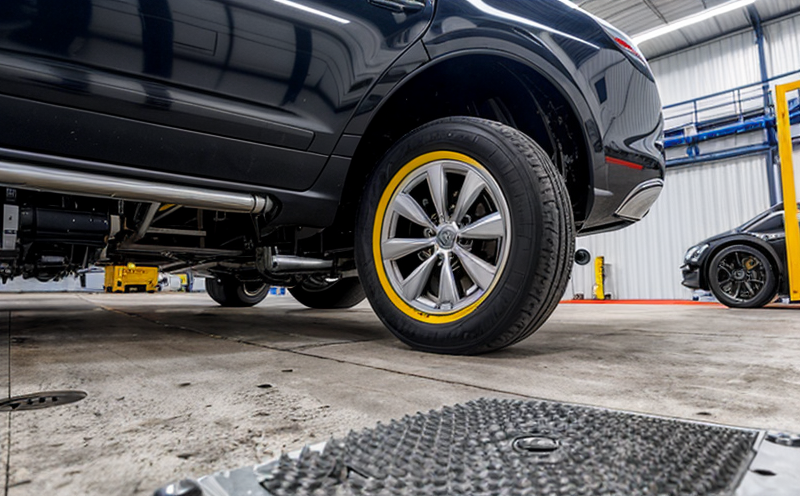SAE AMS7003 Powder Bed Fusion Titanium Alloy Testing for Aerospace
The aerospace industry demands materials that can withstand extreme conditions. Titanium alloys play a pivotal role in this domain, offering exceptional strength-to-weight ratios and corrosion resistance. SAE AMS7003, specifically designed for powder bed fusion additive manufacturing processes, represents a significant advancement in material performance and reliability. This service focuses on the comprehensive testing of titanium alloy parts produced using SAE AMS7003 specifications. Our expertise ensures that every component meets stringent aerospace standards, enhancing safety and operational efficiency.
Our laboratory employs state-of-the-art equipment to conduct thorough mechanical property tests, including tensile strength, hardness, elongation at break, fatigue testing, and impact resistance. These tests are critical in validating the structural integrity of parts fabricated under SAE AMS7003 guidelines. Additionally, we perform non-destructive testing (NDT) techniques such as ultrasonic testing and radiography to ensure there are no hidden defects within the alloy structure.
The aerospace sector relies heavily on additive manufacturing for producing complex geometries with minimal weight and maximum strength. SAE AMS7003 titanium alloy is particularly suited for parts that require precise dimensional control, intricate features, and high performance in harsh environments. Our testing ensures that these critical components meet the stringent requirements set by international standards like ISO 5817, AS9102, and ASTM F42.
Our team of experienced engineers utilizes advanced software tools to simulate stress-strain behavior under various loading conditions, providing valuable insights into part performance. This predictive analysis complements our empirical testing results, offering a holistic view of the material's capabilities. By leveraging this comprehensive approach, we ensure that every additive manufactured titanium alloy component is fit for purpose and reliable.
SAE AMS7003 powder bed fusion processes are renowned for their precision and repeatability, which contribute to reduced manufacturing costs and shorter production cycles. Our testing services play a crucial role in validating these benefits, ensuring that manufacturers can confidently adopt this technology without compromising on quality or safety.
In summary, our SAE AMS7003 powder bed fusion titanium alloy testing service is designed to meet the rigorous demands of the aerospace industry. By providing accurate, reliable test results, we support continuous improvement in material and process selection, fostering innovation and sustainability within this dynamic sector.
Industry Applications
The aerospace industry places high emphasis on safety and reliability, making it imperative to ensure that all components meet the highest standards. SAE AMS7003 powder bed fusion titanium alloy finds extensive application in various aerospace structures, including:
- Fuselage frames
- Wings and wing fittings
- Engine mounts and brackets
- Tank supports and fasteners
- Control surfaces and actuators
These applications benefit from the enhanced strength, durability, and resistance to corrosion provided by SAE AMS7003. The precision of powder bed fusion allows for intricate designs that optimize performance while maintaining weight efficiency, a critical consideration in aerospace engineering.
Environmental and Sustainability Contributions
The precision of powder bed fusion reduces material waste by using only the necessary amount of titanium alloy for each part. This efficiency contributes to lower environmental impact.
By optimizing parts through additive manufacturing, we help reduce overall weight in aircraft components, leading to improved fuel efficiency and reduced emissions during flight operations.
The use of SAE AMS7003 in aerospace applications not only enhances performance but also promotes sustainable practices. Our testing services support the development of greener technologies that meet both industry demands and environmental goals.
Competitive Advantage and Market Impact
Our comprehensive SAE AMS7003 powder bed fusion titanium alloy testing service provides significant competitive advantages to aerospace manufacturers:
We ensure compliance with international standards, enhancing product reliability and safety.
By providing accurate test results, we support continuous improvement in material selection and process optimization.
Our predictive analysis tools offer valuable insights into part performance under various loading conditions, aiding innovation within the industry.
The demand for advanced materials like SAE AMS7003 is expected to grow as aerospace manufacturers seek lighter, stronger components. By partnering with us, companies can stay ahead of this trend and maintain their leadership in the market.





